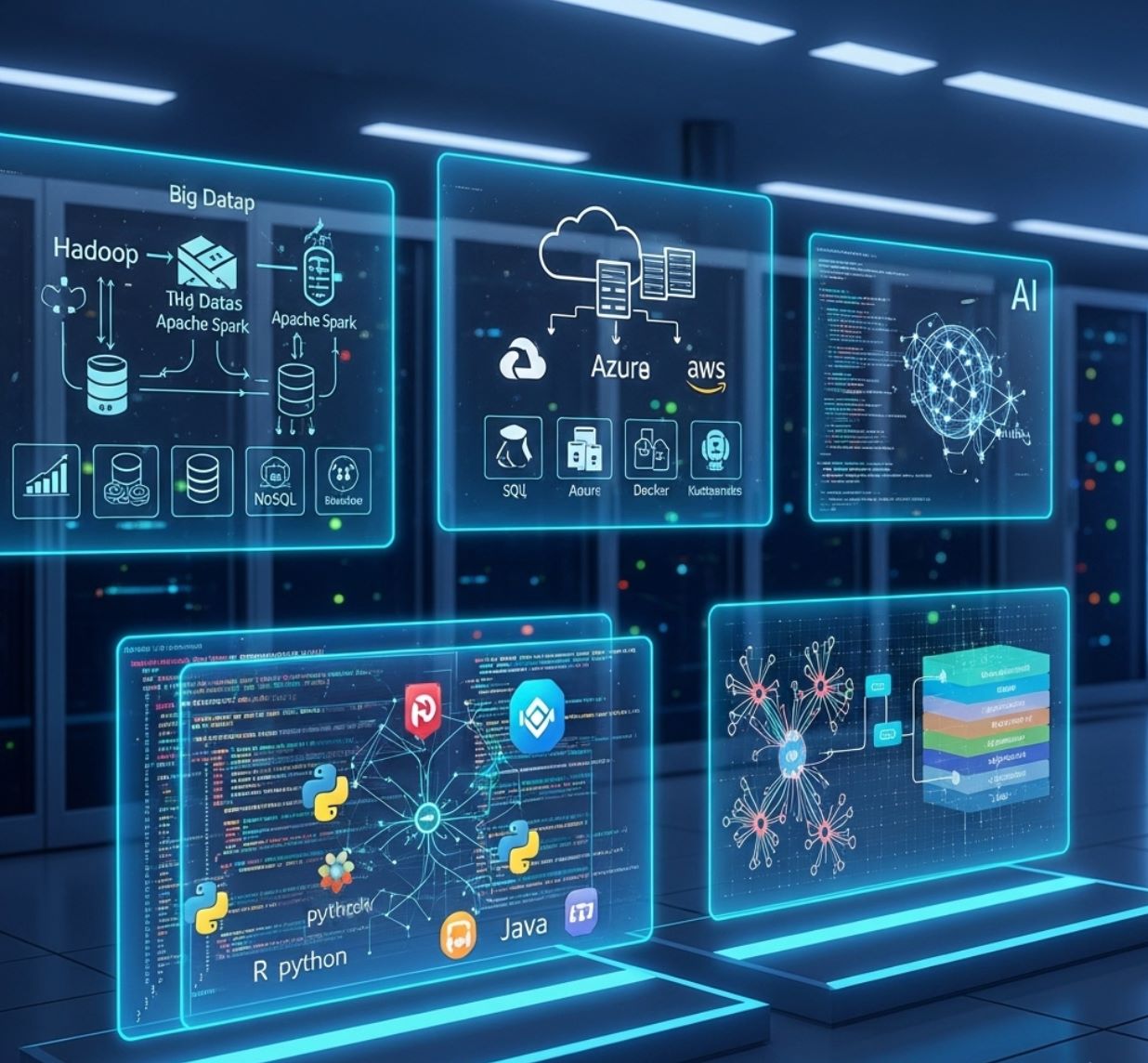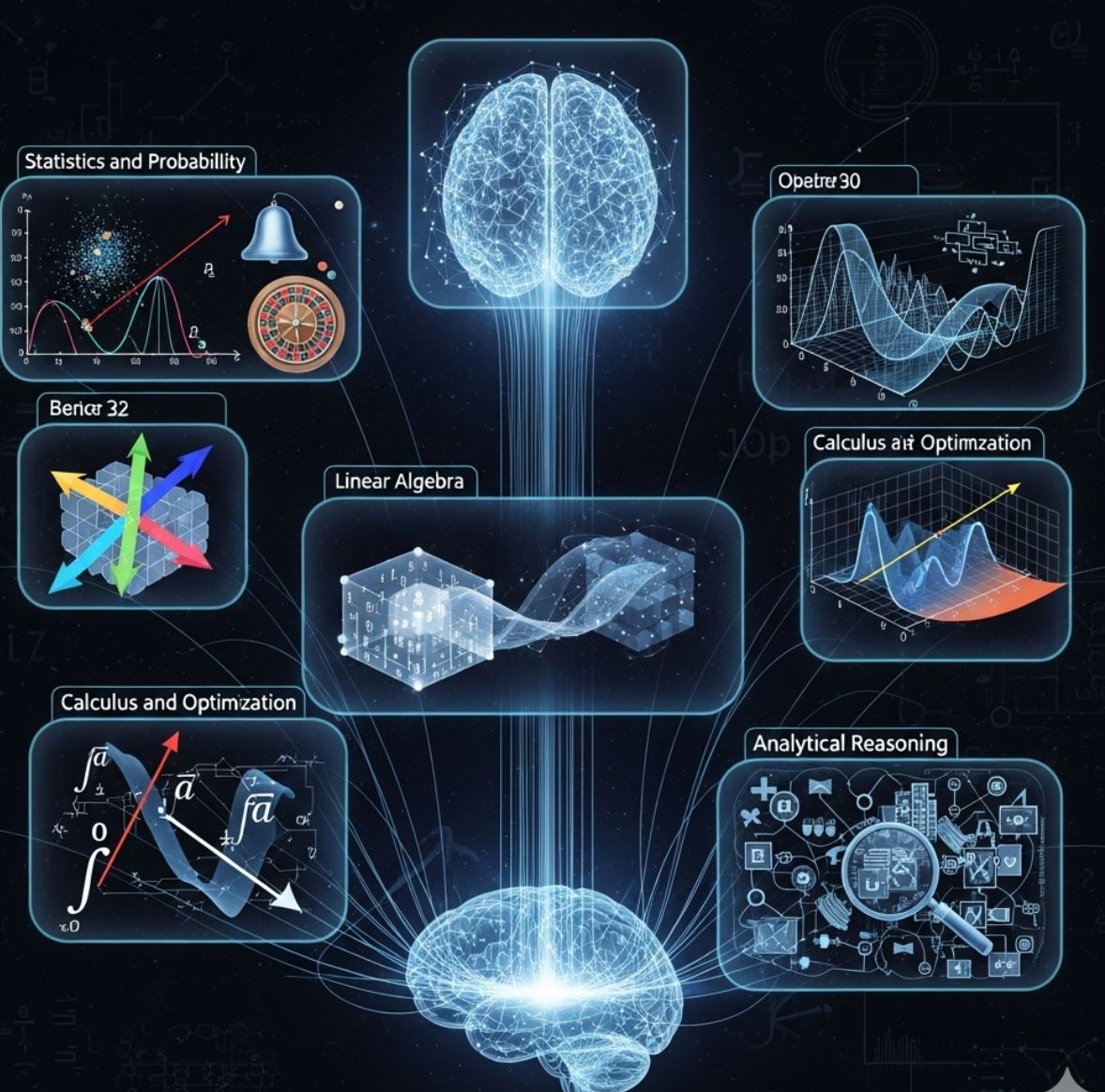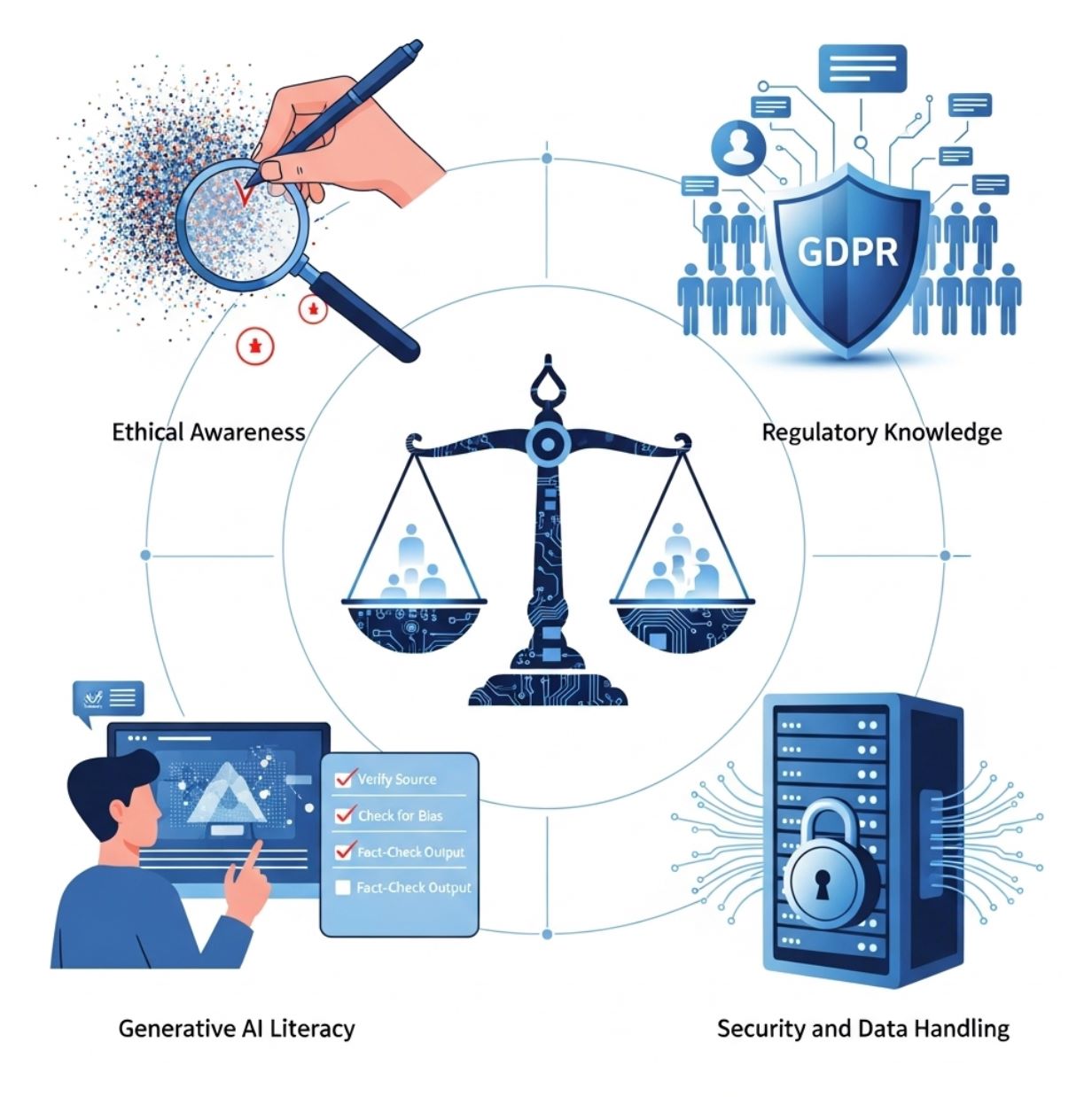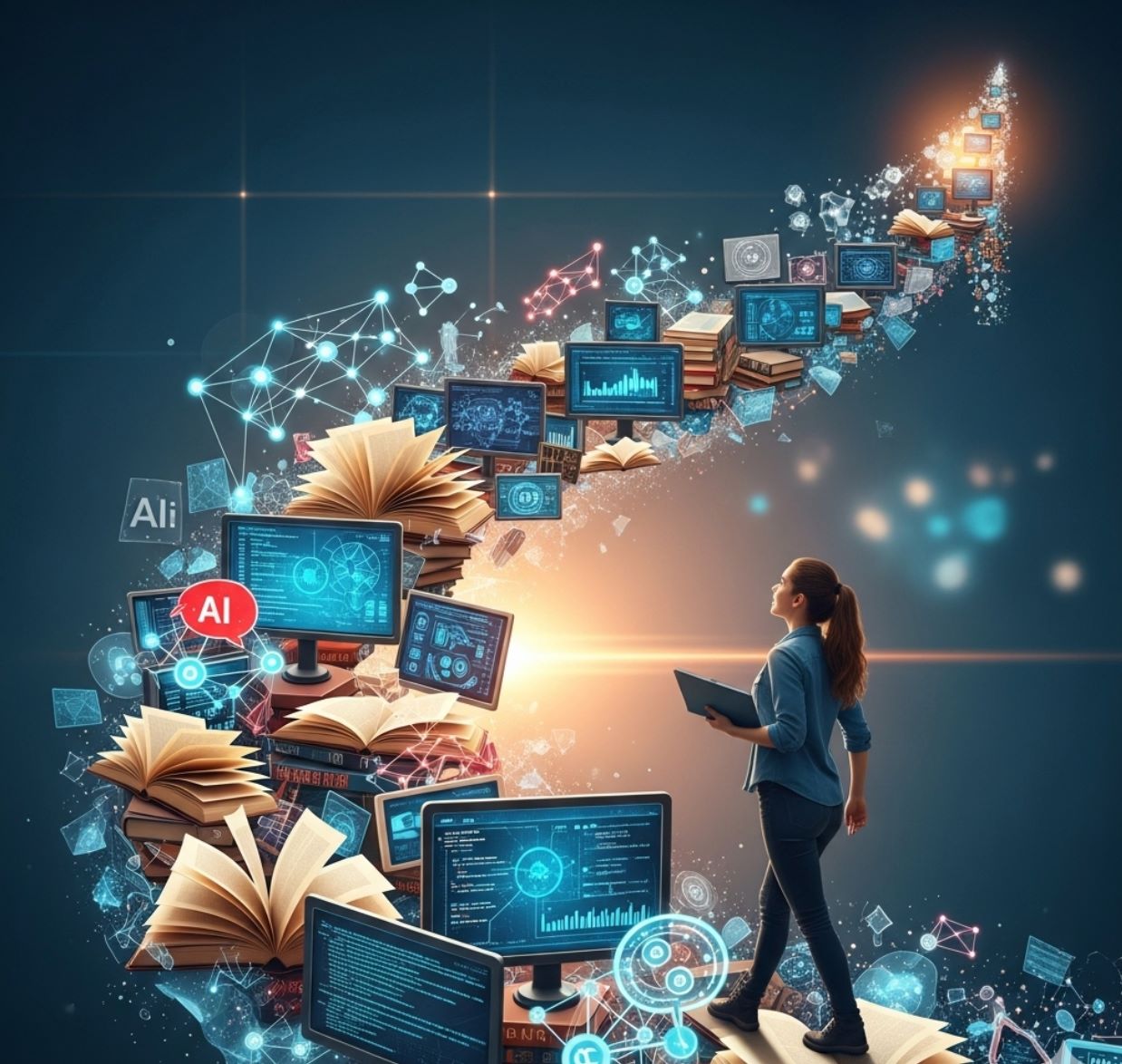Skills Needed to Work with AI
What skills are required to work with AI? Join INVIAI to discover the important hard and soft skills to successfully apply AI to your work.
Artificial intelligence (AI) is transforming industries worldwide, so workers across fields must develop AI-related skills. As the OECD notes, AI's spread "is driving a heightened need for both specialised AI professionals and workers with a more general understanding of AI".
In other words, even non-technical roles increasingly benefit from basic AI literacy – understanding how AI tools work, what data they use, and how they can augment human tasks.
Learners need "foundational AI knowledge and skills" to engage with AI effectively. Success in the AI era requires a mix of technical know-how and human-centered skills informed by ethical understanding.
— UNESCO AI Competency Framework
Now let's learn more about the skills needed to work with AI below!
Core Technical Skills
Programming Languages
Machine Learning & AI Frameworks
Data Management & Big Data Tools
Cloud Computing & Infrastructure
Proficiency in programming languages is a fundamental skill for AI development, and handling large datasets (via tools like Hadoop or Spark) is key to building accurate AI models.
— Johns Hopkins University Analysis

Mathematical and Analytical Skills
Statistics and Probability
Understanding statistics is crucial for designing and evaluating models (e.g. knowing how to measure error or confidence). It enables interpreting AI outputs and quantifying uncertainty.
- Statistical measures (mean squared error)
- Probabilistic reasoning (Bayesian methods)
- Hidden Markov models for uncertainty
Linear Algebra
Many AI algorithms (especially deep learning) rely on linear algebra (vectors, matrices, tensors). Matrix multiplication and eigenvectors underpin dimensionality reduction and neural network operations.
- Matrix operations and transformations
- Dimensionality reduction (SVD)
- Neural network data flow optimization
Calculus and Optimization
Calculus (derivatives, gradients) is fundamental for training models via methods like gradient descent. Optimizing model parameters requires understanding how small changes affect outcomes.
- Gradient descent algorithms
- Loss function minimization
- Multivariable calculus applications
Analytical Reasoning
Beyond formal math, strong analytical thinking helps in formulating problems and troubleshooting models. Breaking down problems and applying quantitative reasoning is vital for AI work.
- Problem decomposition
- Quantitative reasoning
- Iterative model refinement
Fields like statistics, probability, linear algebra and calculus "form the foundation" of sophisticated AI models.
— Johns Hopkins University

Soft Skills and Human Qualities
Technical expertise alone isn't enough. Working with AI also demands strong human-centered skills that AI cannot replicate.
Key soft skills include:
Creativity and Critical Thinking
Innovating with AI often means devising new algorithms or applying AI to unique problems. UNESCO's AI framework explicitly calls for "problem-solving, creativity and design thinking".
Likewise, EU research stresses that human skills like creativity and complex problem-solving will be increasingly sought alongside AI.
Communication and Teamwork
AI projects usually involve cross-functional teams (data scientists, domain experts, managers). Being able to explain AI concepts in simple terms, write clear documentation, and collaborate effectively is crucial.
EU findings emphasize communication and collaboration as vital "soft" skills that complement technical abilities.
Adaptability and Lifelong Learning
AI is a fast-moving field. Employers and experts highlight adaptability, flexibility, and curiosity as top skills for the AI era. The World Economic Forum finds that skills like curiosity and a growth mindset are rising in importance.
OECD also notes that continuous upskilling is key, since the workplace is evolving rapidly. Workers who can quickly learn new tools and pivot to emerging technologies will thrive.
Empathy and Emotional Intelligence
Understanding user needs, ethical implications and team dynamics requires empathy. EU analysts list empathy and emotional intelligence among the soft skills that "will continue to be needed" in AI-augmented workplaces.
These skills help in designing AI that truly serves people and in leading teams through change.

Ethics and Responsible AI Use
AI's power raises ethical and legal considerations, so understanding them is an important "skill" for AI work:
- Ethical Awareness: Workers should know AI's potential biases and societal impacts. UNESCO explicitly makes Ethics of AI a core competency (responsible use, fairness and safety). This means being able to critically assess AI outputs for unintended bias or harm and following best practices (like designing transparency into algorithms).
- Regulatory Knowledge: Familiarity with data protection (e.g. GDPR), privacy regulations, and industry standards ensures compliant AI use. Companies increasingly expect employees to understand governance frameworks around AI.
- Generative AI & Tool Literacy: Using new AI tools (like generative AI assistants or content tools) effectively and safely is a practical skill. UNESCO highlights that AI literacy includes knowing "how to use Generative AI responsibly" (for writing or business tasks). This covers being able to prompt models correctly, verify AI suggestions, and avoid pitfalls like misinformation.
- Security and Data Handling: The EU report also notes that technical skills such as data security are needed alongside AI skills. Protecting sensitive data, securing AI systems, and following cybersecurity best practices are increasingly part of the AI skillset.

Lifelong Learning and Adaptability
A final key "skill" is the ability to learn continuously. AI technologies evolve so quickly that what is cutting-edge today may be outdated tomorrow.
Both researchers and institutions stress lifelong learning:
Continual Learning
The OECD and EU highlight that education must shift toward continual, flexible learning, as past training quickly becomes obsolete.
Curiosity Mindset
The WEF notes that "curiosity and lifelong learning" are among the most important skills for future jobs.
Proactive Upskilling
Being proactive about upskilling – taking courses, attending workshops, or self-studying new AI methods.
It also means having a mindset open to change. Workers who stay engaged (for example by experimenting with new AI tools in their role) will adapt best.

Building an AI-Ready Profile
In conclusion, succeeding in an AI-rich workplace involves blending a variety of skills. Specialists still need core AI competencies (programming, ML, data analysis), while all workers benefit from general AI literacy (basic understanding of AI tools and concepts).
Equally important are human skills – creativity, communication, empathy – and an ethical outlook. Global studies make it clear: a mix of technical, analytical, and interpersonal strengths is essential.

By developing coding and math skills alongside problem-solving, adaptability and responsible awareness, professionals across fields can position themselves to thrive with AI.







No comments yet. Be the first to comment!